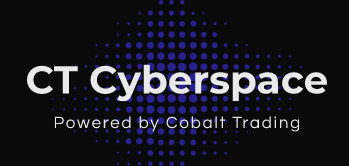Just like desktop devices, Servers can also be infected by Computer Viruses and other Malware. Servers are often the heart of a company’s computer network. Because multiple devices would typically connect to a Server, if unprotected, Servers can play an integral part in allowing viruses and other Malicious software to spread through a network.
In a world of technology and data, the data that is on and passes through the business servers are often one of the most valuable assets. It can also be the most vulnerable.
Anti-Virus software, as it is commonly referred, to is a program or sets of programs that are specifically designed to protect against Computer viruses and other malicious software. (Malware)
Antivirus software does the following:
- It searches for and detects Malware.
- It removes Malware.
- It protects devices from getting infected with Malware.
Developers of Antivirus software has an extensive database of known viruses and other malware. They constantly update these databases as new malware emerges.
Antivirus software protects the server by scanning files and code and comparing it to patterns that are known to be present in Malware. This includes network traffic that pass through the server.
Because malware is often used to create a vulnerability, or backdoor into a network, having security software in place also protects data from being compromised.
Why should you use Anti-Virus Software that is specifically designed for Servers?
Just like you need to load the correct software and Operating System to ensure that your server perform its desired functions to its fullest potential in the most effective way, so would you also expect the same from your Anti-Virus and Anti-Malware software.
Anti-Virus software is designed with server functionality in mind to protect the data on the server and the traffic through the server. A good server Anti-Virus program will also include end point security, which refers to the devices that connect to the server.
When choosing an Anti-Virus for a server, there are some factors to consider.
Minimal impact on speed and performance.
Server speed and performance are generally crucial to productivity. A slow server can reduce productivity and be frustrating to the users. A good Anti-Virus program will provide maximum security with minimum impact on the speed and performance of the server.
Offer end point protection.
End Points refer to the devices that connect to the server. This is typically desktop computers, laptop computers and mobile devices.
The devices that connect to a network and the server can often be vulnerable to malware, especially laptops and mobile devices, which are often used to connect remotely. When a device is infected by malware it may spread the malware through a network if the network is not adequately protected.
Provide Layered protection.
Layered protection, or multi-layered security refers to the anti-virus program providing multiple levels of defenses and features to protect the server from viruses, other malware, and cyber-attacks. These components of the defense work together in such a way that the one will protect against a treat that may have been missed by another component of the software.
In other words, it is like a Fort or Medieval Castle, with multiple defenses where different methods and strategies were used to protect against attack to slow and defeat the enemy.
Protection against new Malware
There is a constant tug of war between malware creators and the developers of Anti-Malware designers to outsmart one another.
It is important that the security software that you choose must be vigilant in ensuring that they are up to date with the latest malware and that they keep updating their software to be able to protect against the most current threats.
What else should you do to protect the Server and Network?
Apart from Anti-Virus and Anti-Malware software, there are also basic steps to follow to further protect the server and the network. Consider Implementing the following policies and procedures.
Use Strong Passwords
Ensure that only strong passwords are used on the server and by all network users. Set minimum password lengths. Make it compulsory that passwords must be a combination of upper case and lower case and include numbers and symbols.
Educate users not to share their passwords with anybody.
Limit access
Limit access to secure files and carefully select which users has access to what. Also limit the number of users who are granted access to sensitive data, to a minimum.
Email Policy
Email is a is a popular target to introduce malware into a network. Implement email policies and educate employees on email security. E.g. – Do not open attachments on suspicious emails etc.
Remote Access Policy
Devices that access the network remotely may pose a risk. Especially if this access may sometimes be through public W-Fi. Implement a remote access policy and educate employees. Make use of a VPN service when needed.
Use of personal device policy
It is recommended that only devices that belongs to the business should be allowed access to the network. This gives the business better control over what software should and may be installed on the devices and what the devices may be used for.
If you must allow the use of personal devices for whatever reason, provide guidelines, and educate employees about things like the risks of visiting dubious websites etc.
Removable Storage devices
Removable storage devices can intentionally, or unintentionally contain viruses or malware that can infect computers when it is used on it. If there is no need to use removable storage devices, you may want to consider disabling removable storage access on some, or all computers.
Removable storage devices also often get lost, which increase the risk of confidential information falling into the wrong hands.

